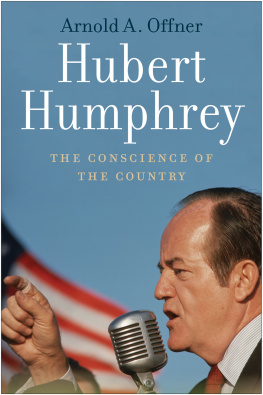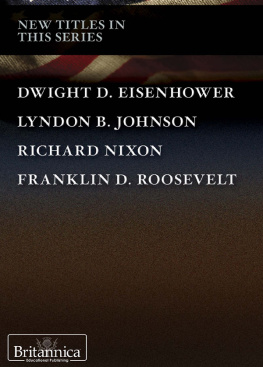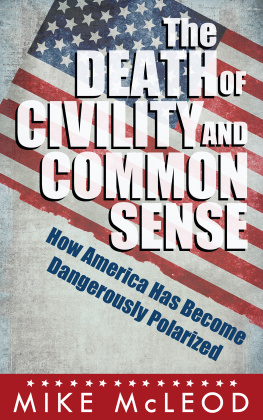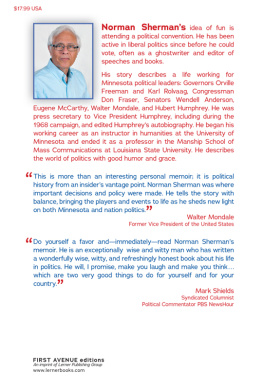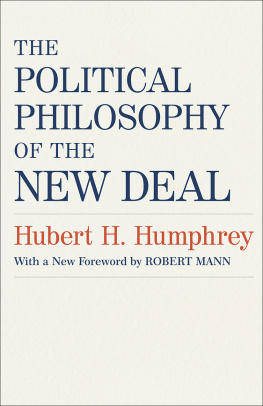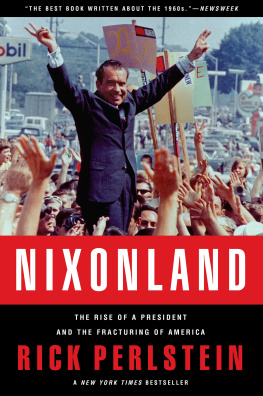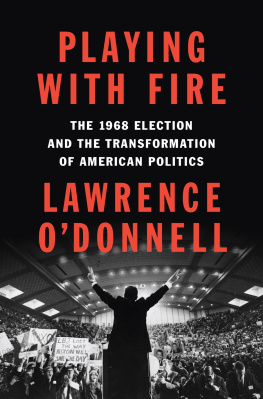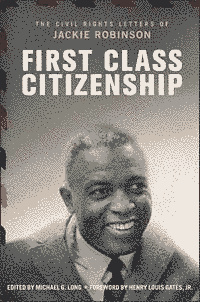
H UBERT H UMPHREY

Copyright 2018 by Arnold A. Offner. All rights reserved. This book may not be reproduced, in whole or in part, including illustrations, in any form (beyond that copying permitted by Sections 107 and 108 of the US Copyright Law and except by reviewers for the public press), without written permission from the publishers.
Yale University Press books may be purchased in quantity for educational, business, or promotional use. For information, please e-mail (UK office).
Set in Electra and Trajan types by IDS Infotech Ltd. Printed in the United States of America.
Library of Congress Control Number: 2017963184
ISBN 978-0-300-22239-5 (hardcover : alk. paper)
A catalogue record for this book is available from the British Library.
This paper meets the requirements of ANSI/NISO Z39.48-1992 (Permanence of Paper).
10 9 8 7 6 5 4 3 2 1
For Ellen

C ONTENTS

P REFACE
This book, Hubert Humphrey: The Conscience of the Country, explores Humphreys more than thirty-year mayoral and national career as the standard-bearer of American liberalism. Humphrey was elected twice as mayor of Minneapolis, five times as United States senator, and once as vice president, and he was his partys presidential nominee in 1968, when he lost a historically close election to Richard Nixon. In 1977, legendary Massachusetts Democratic Speaker of the House Thomas P. Tip ONeill called Humphrey the most genuine liberal the country has ever produced and said he had played a dramatic role in shaping every major legislative initiative that has become law in the past twenty-five years. In 1978, one thousand past and present congressional aides voted Humphrey the most effective legislator of the twentieth century.
Most significant, Kansas Republican senator Robert Dole said that although Humphrey had overshot the Nations highest office, he had become one of the great world leadersone of the major moral forces of our time or of any time. President Jimmy Carter, who believed that Humphrey deserved to be president, stated that from time to time the United States is blessed by men and women who bear the mark of greatness and who help us see a better vision of what we are and what we might become, and Hubert Humphrey was such a man. Vice President Walter Mondale called him the countrys conscience.
My prior scholarly research has focused on the history of American foreign relations from the era of Woodrow Wilson through Franklin Roosevelt and Harry Truman. But when I set out more than a decade ago to write a general history of the postSecond World War era, my research increasingly pointed to Humphrey as a major force for nearly every important liberal policy initiative, beginning with his bringing an urban New Deal to Minneapolis to his daring civil rights speech at the Democrats convention in 1948 that urged his party to get out of the shadow of states rights and to walk forthrightly into the bright sunshine of human rights, putting civil rights on his partys and the nations agenda for decades to come. As senator, he proposed legislation to effect national health insurance, foreign aid to poorer nations, immigration and income tax reform, a Jobs Corps, the Peace Corps, the Arms Control and Disarmament Agency, and the path-breaking 1963 Limited Test Ban Treaty, which opened the way to later nuclear nonproliferation and strategic arms reduction agreements. His masterful stewardship of the historic 1964 Civil Rights Act through the Senate led to the 1965 Voting Rights Act and 1968 Fair Housing Act. He became an advocate of global dtente, containment without isolation of the Peoples Republic of China, and limits on the presidents power to wage war without Congresss consent. Finally, his Full Employment and Balanced Growth Act sought to make a job a right, but Congress eliminated this and made full employment a goal rather than a mandated target.
Significantly, both as a senator in 1964 and as vice president in early 1965, Humphrey, almost alone among senior officials, warned Johnson against expanding the Vietnam conflict. It could not be won by military means, he said, but only by winning hearts and minds through a lengthy reform process. Prolonged fighting would fracture the political coalition that made the Great Society possible. This brought the vice president painful exile from Johnsons White House, until he gave in to becoming the administrations spokesman for the war, which he said sought to defeat Communism and to bring Great Society programs to South Vietnam. But his backing of the war cost him support of his liberal constituency.
Humphrey finally proposed to wind down the war during his 1968 presidential campaign, and he swiftly regained his broad-based following. However, Johnson seriously undermined him because he believed Richard Nixons position on the war to be closer to his, despite evidence that the Republican candidate and his aides were urging the governments of South and North Vietnam not to attend the Paris peace talks with a view to gaining a better settlement if he was elected president.
After trailing Nixon by about eighteen points, Humphrey lost the election by only the narrowest of margins. He might have won, or thrown the election into the Democratically controlled House of Representatives, but for Johnsons betrayal of him.
Humphreys exceptional legislative and political achievements have been largely overlooked. Whereas he declared to his Senate colleagues in 1957, I am a liberal without apology, the rise of conservatism in recent decades has led many Democrats to shy from identifying as liberals or with that political tradition, contributing to the lack of acknowledgment of his pioneering work shaping the liberal programs and traditions that buttress our modern order. Further, scholars of recent American history have preferred to focus on presidents and their accomplishments. Carl Solbergs early 1984 book Hubert H. Humphrey: A Biography is the only full study of him and is very brief on Humphreys career after 1968. Solberg did not have benefit of access to the reorganized, extensive collection of Hubert H. Humphrey Papers at the Minnesota State Historical Society in St. Paul, the vast trove of personal papers and government records now available at the Lyndon Baines Johnson Presidential Library at the University of Texas, along with recently declassified US Department of State and National Security Council records, and the important scholarship of the past three decades about American history.
My biography assesses Humphreys significant impact on American politics and his exceptional legislative achievements, his long and complex relationship with Lyndon Johnson, his shifting views on the Vietnam War, and the Minnesotans post-1970 Senate career. During this latter period, he powerfully effected Democratic Party policy and its choice of national candidates, pressed major congressional domestic and foreign policy legislative initiatives, and became President Carters chief ally in the Senate.
Humphreys political record is of great relevance in the current era, when issues of civil rights, including voting and wages, as well as jobs, jobs, jobs, national health care, US involvement in civil and regional crises, and negotiation of nuclear accords are high on the nations political agenda and his maxim that compromise is not a dirty word seems to have been forgotten by too many politicians.
Next page
